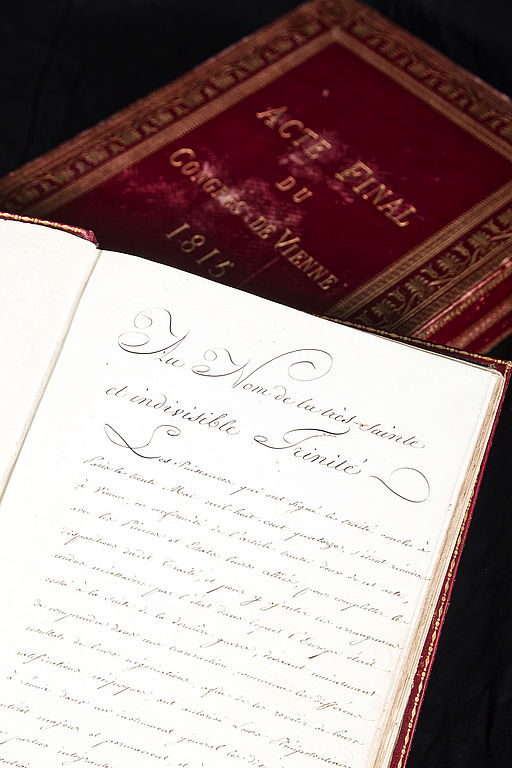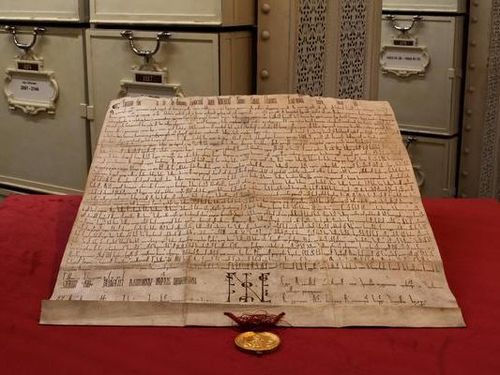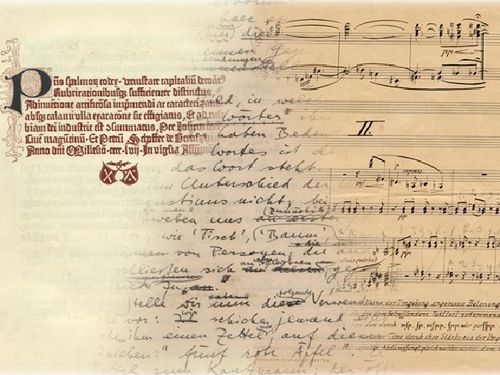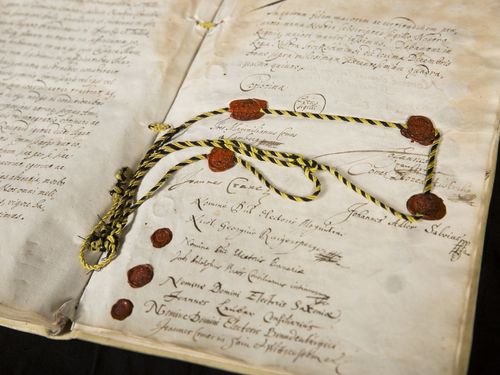At the end of the Napoleonic Wars, the Congress of Vienna redefined the map of Europe and established a stable balance between the political powers, which shaped Europe for more than half a century. The Final Act of the Congress records this historically significant event.
The Congress of Vienna was held in Vienna from 1814-1815 and brought together a myriad of European monarchs and rulers. This meant that Vienna was once the centre of international diplomatic relations. The later Austrian Chancellor Klemens Wenzel Lothar von Metternich played a vital role in this process. The Congress dealt with the regulation of international shipping traffic, the abolition of slavery and Swiss neutrality, among other questions. The most important result of the Congress of Vienna was the establishment of a new political order in Europe as well as the creation of the German Confederation.
The Final Act, dated 9 June 1815, compiles over one hundred articles and records the Congress’ advisements and results. The Austrian copy, which was presented as one of the eight copies belonging to the signing powers (Austria, France, Great Britain, Portugal, Prussia, Russia, Spain and Sweden), is of particular interest from an aesthetics perspective. It contains 220 pages that are elegantly bound in a red velvet cover and made official by the gold seals in the form of the coat of arms for each of the eight signing powers.
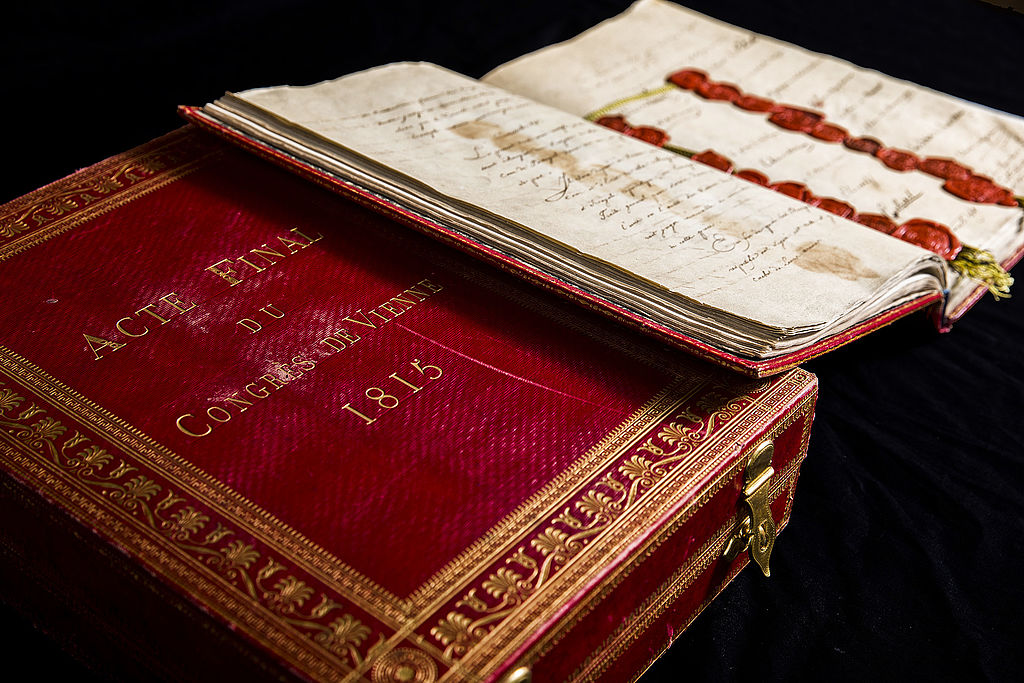
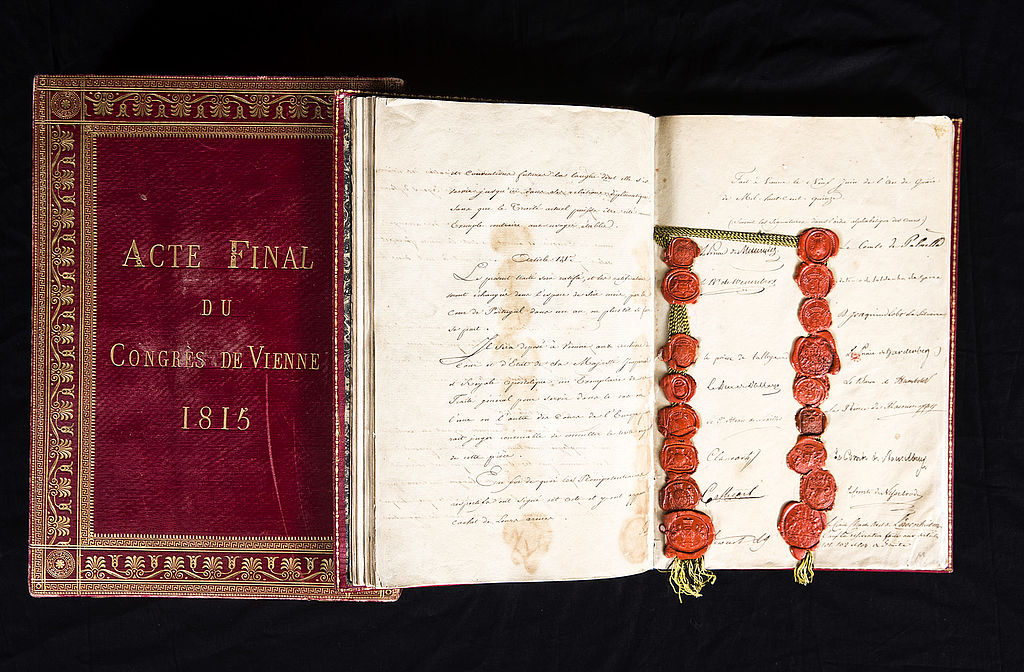
Global significance
The Congress of Vienna had a substantial influence on world history and its impact extended far beyond Europe. It served as a meeting point for major European powers who deliberated on international issues and together formed a new Europe. The political system implemented by the Congress of Vienna defined Europe’s political landscape for more than 50 years and laid the foundation for a long period of peace. The Final Act records this historic event, the lasting consequences of which can still be seen today in exceptional ways.


